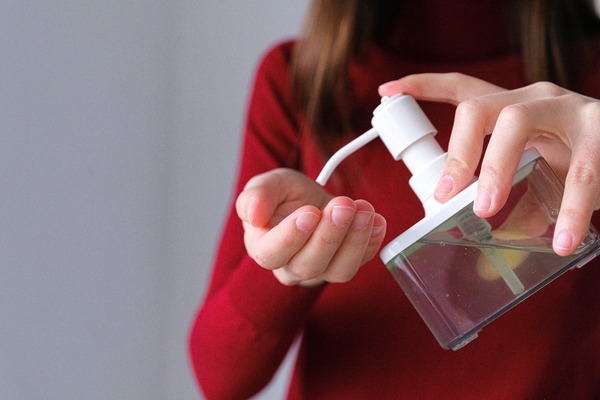In today's world, maintaining proper hand hygiene is more crucial than ever. With the rise of contagious diseases and the ongoing COVID-19 pandemic, hand sanitizers have become an essential tool in our daily lives. This guide aims to provide you with comprehensive information about hand sanitizer, including their benefits, correct usage, and best practices.

Benefits of Hand Sanitizer
Hand sanitizers offer several benefits when used correctly. Here are some key advantages:
1. Convenient and Portable
Hand sanitizers come in various sizes, from pocket-friendly bottles to larger containers, making them easy to carry and use anytime, anywhere. They provide a quick and hassle-free alternative to handwashing, especially when soap and water are not readily available.
2. Effectiveness in Killing Germs
Quality hand sanitizers with a high alcohol content (usually 60% or above) can effectively kill a broad spectrum of bacteria, viruses, and other microorganisms. They act by disrupting the outer lipid layer of these germs, rendering them inactive and reducing the risk of infection.
3. Preventing the Spread of Diseases
Regular use of hand sanitizer can help prevent the transmission of contagious diseases. By eliminating germs from your hands, you reduce the likelihood of spreading infections to others or coming into contact with pathogens that may enter your body through mucous membranes (such as the eyes, nose, or mouth).
Proper Usage of Hand Sanitizer
To maximize the effectiveness of hand sanitizers, it is important to follow these guidelines:
1. Apply the Right Amount
Dispense an adequate amount of hand sanitizer into the palm of your hand. Follow the product's instructions to determine the appropriate volume, typically around a dime-sized amount.
2. Rub Thoroughly
Rub your hands together, ensuring you cover all surfaces, including the back of your hands, between your fingers, and around your nails. Continue rubbing for at least 20 seconds or until the hand sanitizer has evaporated.
3. Don't Rinse or Wipe Off
Allow the hand sanitizer to air dry on your hands. Do not rinse or wipe it off immediately after application, as this can diminish its effectiveness.
Best Practices for Hand Sanitizer Use
To make the most of hand sanitizers and maintain proper hand hygiene, consider the following best practices:
1. Prioritize Handwashing When Possible
Although hand sanitizers are effective, they should not replace regular handwashing with soap and water. Whenever you have access to soap and water, especially after using the restroom, before eating, or when your hands are visibly dirty, opt for handwashing instead.
2. Check the Alcohol Content
When purchasing hand sanitizers, ensure they contain at least 60% alcohol. Read the product labels carefully to verify the alcohol content and choose reputable brands or those recommended by health authorities.
3. Supplement with Moisturizers
Frequent use of hand sanitizers can cause dryness and irritation. Consider using hand sanitizers that contain moisturizing agents like aloe vera or glycerin to help keep your skin hydrated. Additionally, applying hand lotion or cream after using hand sanitizer can further prevent dryness.
Conclusion
Hand sanitizers play a crucial role in maintaining proper hand hygiene, particularly in situations where handwashing is impractical. Their convenience, effectiveness in killing germs, and ability to prevent the spread of diseases make them an essential tool in our daily lives. By following proper usage and best practices, we can harness the benefits of hand sanitizers while minimizing the risk of infections and promoting a healthier environment for everyone. Remember, clean hands contribute to a healthier you!




